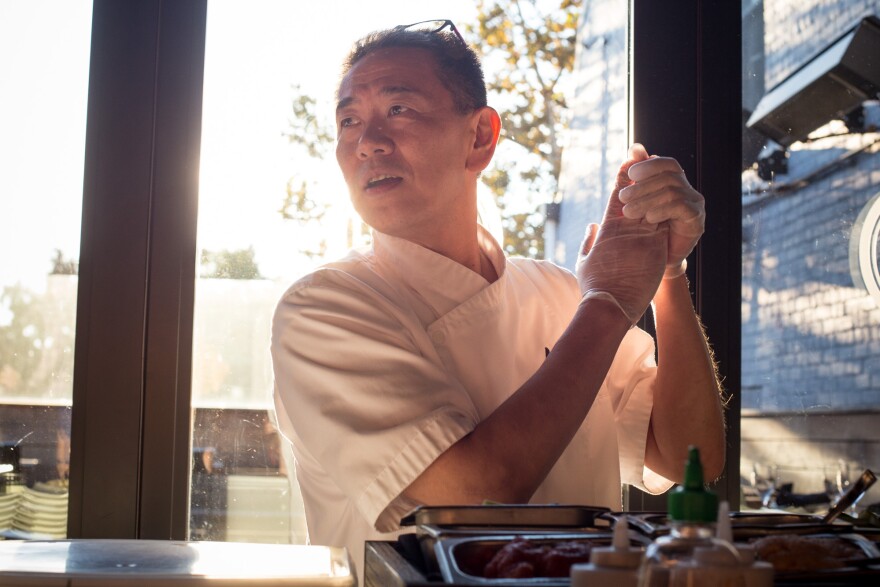The once rarefied taste of raw fish has now become an American staple.
Sushi is found at the humblest of supermarkets and on conveyor belt restaurants at the mall.
But do we really understand how to eat it? We had the chance to chat with Washington, D.C., master sushi chef Kaz Okochi recently, who cleared up a few things for us.
First of all, if you've ever tried to pick up a fat piece of nigiri with your chopsticks to impress your date, and ended up dropping it down your shirt or all over your plate, just stop doing that.
"It's totally acceptable, and sometimes I would say preferable, to eat the sushi with the fingers," says Okochi.
"As a sushi chef, we try to make the rice very soft," he says. "Put it in your mouth, it kind of breaks apart. ... This is good sushi." If you try to pick it up with chopsticks, it falls apart before you get it in your mouth, he says.

So, first myth busted: Yes, it's OK to eat sushi with your fingers.
Good sushi is made with soft, sticky short-grain rice, lightly seasoned with sugar and vinegar. (It's also supposed to be eaten at room temperature, FYI. We only buy it out of a cold case at the grocery store because it's convenient.) And it's not smashed into its seaweed wrapper — as was our instinct — but rather patted gently into place, as Okochi showed us when we attended his sushi-making class recently.
We didn't exactly ace the class, which was held at Masa 14, a restaurant in Washington, D.C. We were both told not to smush the rice down, and there was a trick wrist flip with the bamboo rolling mat, too, that we didn't quite catch. Perhaps our biggest faux pas? The soy sauce soaking we thought our sushi needed.
"Americans tend to eat too much soy sauce for dipping," Okochi told us. Maybe we're trying to camouflage the fishiness of the fish? The Japanese are much less squeamish.
Nonetheless (our American instincts aside), we ended up as competent sushi makers.
And, this gets us to the next myth: Women can't make sushi.
We've heard things like our hands are too warm — due to fluctuating body temperatures at certain times of the month. We wear perfume. It's hard labor.
But these are really just excuses, says Okochi. There are few women sushi chefs mainly because professional cooking has been a male-dominated profession.

And let's face it: It takes a special person — male or female — to tackle breaking down giant Bluefin tunas with sharp knives all day.
But there are signs of change for female sushi chefs, says FoodStory founder Yoko Isassi, a Los Angeles-based food consultant who sprinkles Japanese cultural education into the cooking classes she teaches.
"In the field of conveyor belt-style sushi bars, there will be more women working. If we talk about top-notch sushi restaurant, that's another story," she writes in an email.
She says change is slow.
"My heart stopped when I saw an Instagram photo of [a] female sushi chef, who opened her first sushi restaurant in Ginza, shaved her hair and [wore] no makeup. It just reminded me how hard it is to work as a women in [a] male-dominant profession," Isassi writes.
And Isassi knows from experience.
"I worked as an architect in Japan when I was [in my] late 20s. The construction field is male dominant and some workers were just reluctant to communicate with me. ... I see many changes in [the] last 10 years. But when I saw the hairless sushi chef photo, I couldn't help crying."
Copyright 2021 NPR. To see more, visit https://www.npr.org.




